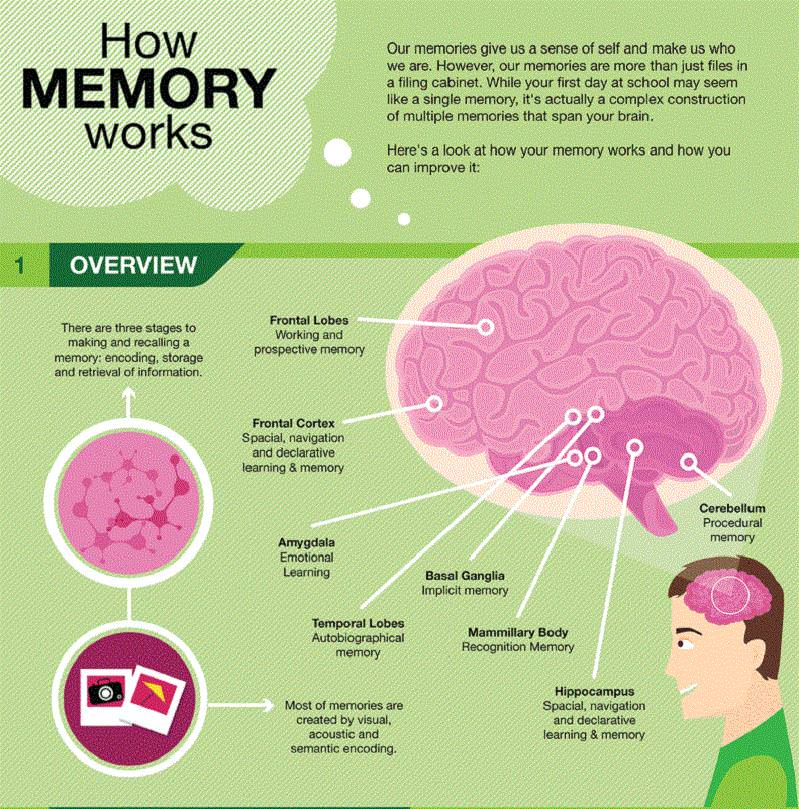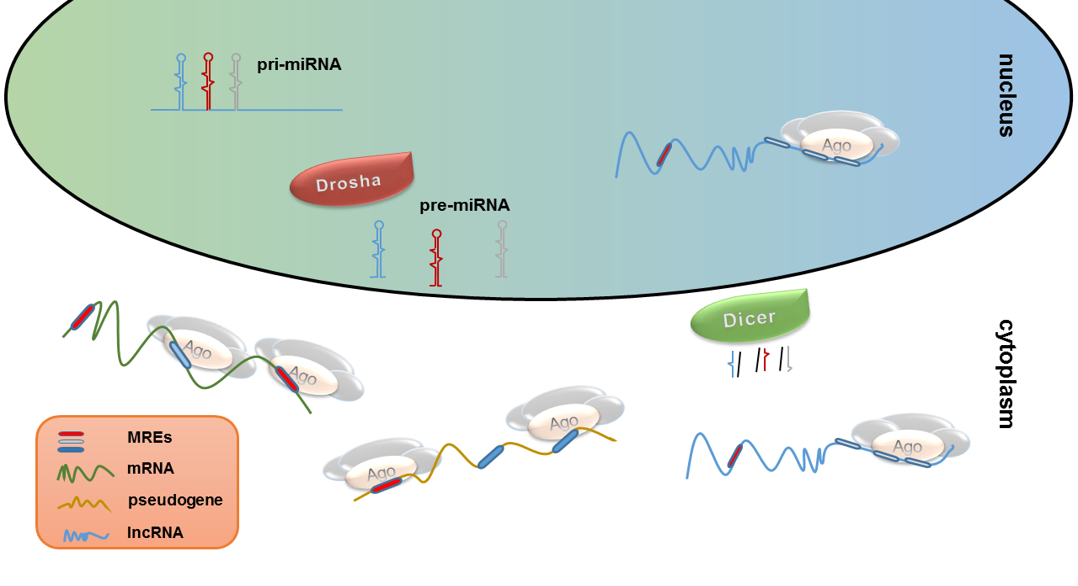If you wish to improve memory, you are not alone; many people seek ways to enhance their recall abilities. There are numerous memory improvement techniques that can empower you to remember details more effectively, whether that’s someone’s name or critical information for an exam. Brain training exercises and memory recall tips have been developed based on scientific research, providing actionable strategies to help optimize your cognitive skills. In their insightful book “Why We Forget and How to Remember Better,” Harvard scholars Andrew Budson and Elizabeth Kensinger delve into these methods to empower readers to learn how to remember better. By incorporating memory enhancement tips into your daily routine, you can transform the way you retain information and boost your overall mental acuity.
Searching for ways to bolster mental performance? Improving our ability to recall information effectively is something many of us strive for in our daily lives. Techniques aimed at enhancing cognitive function can involve various strategies that focus on brain health and memory retention. Whether through structured practice, lifestyle adjustments, or innovative memory strategies, you can elevate your mental sharpness significantly. This discussion will touch upon different approaches to enhancing recall and revitalizing your memory, offering insights into effective brain training and cognitive enhancement.
Understanding Memory Enhancement Techniques
Memory enhancement techniques are vital for anyone looking to improve their cognitive abilities and recall information more effectively. From mnemonic devices to spatial memory strategies, there are various methods to help reinforce the brain’s recall capabilities. For instance, the method of loci, also known as the memory palace, involves visualizing a familiar space and assigning information to specific locations within that space. This technique not only helps in remembering items but also in improving overall cognitive function by engaging creative visualization.
Similarly, practicing retrieval by actively recalling information can significantly boost memory. Studies have shown that testing oneself after learning new material enhances long-term retention far better than passive study methods. Incorporating consistent practices such as quizzes or flashcards can fortify these memory-enhancement efforts, ensuring that the information is not just memorized but truly understood and retained.
Another effective strategy is spaced repetition, which encourages revisiting learned material at gradually increasing intervals. This reinforces memory pathways in the brain, resulting in more potent recall. Integrating these methods into daily practice can transform how we retain information, making learning experiences more robust and fruitful.
Tips for Optimizing Memory Recall
To optimize memory recall effectively, it’s crucial to understand how various factors influence sharpness in remembrance. One key tip is maintaining a healthy lifestyle, as physical exercise stimulates the release of growth factors that are essential for brain health. Engaging in regular aerobic workouts can enhance both the volume of the hippocampus and overall memory capacity, which is particularly beneficial for tasks requiring significant recollection.
Additionally, managing stress levels plays a critical role in memory performance. Chronic stress is known to interfere with the brain’s ability to encode and retrieve memories efficiently. Techniques such as mindfulness and meditation can help reduce anxiety, thus creating a better environment for memory recall. Implementing these strategies in conjunction with memory recall tips can sharpen one’s mental faculties.
Diving into Brain Training for Effective Memory
Brain training exercises are designed to enhance cognitive functions, including memory. Engaging in activities that challenge the brain, such as puzzles, memory games, or even learning a new language, can significantly boost memory performance. These exercises stimulate neural pathways, fostering connections that lead to improved recall and understanding.
Furthermore, incorporating social interactions that require memory use, such as playing strategy games or group trivia, can encourage cognitive engagement. These activities not only make learning enjoyable but also reinforce memory in a dynamic environment. Keeping the brain active through such social and mental exercises is a fundamental aspect of effective brain training.
Research-Backed Memory Improvement Strategies
The field of neuroscience has provided numerous research-backed strategies aimed at memory improvement. Some of these strategies include the ‘spacing effect,’ which leverages intervals of review rather than cramming information all at once. This approach has been shown to improve retention rates significantly, as it allows the brain time to process and solidify memories.
Another proven technique is the association method, where individuals connect new information to existing knowledge. This can be particularly effective when trying to remember complex concepts or lists. By creating links within the brain’s existing framework, individuals can increase their ability to retrieve these memories when needed, proving strategic memory interventions can yield substantial benefits.
Utilizing Sleep for Memory Consolidation
Sleep plays a pivotal role in memory consolidation, a process vital for transforming newly acquired information into long-term memories. Studies suggest that during sleep, particularly during the REM stage, the brain processes and organizes memories from the day. Thus, prioritizing quality sleep is crucial for anyone looking to improve memory.
Taking breaks between study sessions and ensuring adequate rest can enhance learning efficiency, allowing the brain to operate at optimal levels when recalling information. Implementing proper sleep hygiene techniques—such as maintaining a regular sleep schedule and creating a restful environment—can facilitate this critical memory function.
Factors that Impair Memory Performance
Numerous external factors can impair memory performance, with stress and substance use being primary culprits. For example, research indicates that substances like cannabis can adversely affect cognitive functions and memory recall abilities. Being aware of these impairments and actively managing exposure to such factors can significantly improve one’s cognitive edges.
Additionally, multitasking is another common barrier to effective memory functioning. Engaging in multiple high-concentration tasks simultaneously often leads to memory degradation. It’s more efficient to focus on one task at a time, allowing the brain to process information thoroughly, which enhances overall memory retention.
Incorporating Mindfulness into Memory Techniques
Mindfulness has emerged as an influential practice that not only enhances well-being but also bolsters memory capabilities. Research reveals that mindfulness meditation can lead to increased attention and concentration, critical components of effective memory recall. By training the mind to stay present, individuals can improve their focus on the tasks at hand, thereby enhancing their ability to absorb and later retrieve information.
Furthermore, incorporating brief mindfulness exercises into study routines can optimize learning environments, making them more conducive to memory retention. Taking even short breaks to practice deep breathing or mindful observation can refresh cognitive resources, ultimately leading to better memory performance during the active learning phase.
Real-World Applications of Memory Techniques
Application of memory techniques in real-world scenarios can greatly enhance both personal and professional effectiveness. For instance, professionals in fast-paced environments benefit significantly from memory improvement strategies during presentations or client interactions, where recalling names and details dramatically impacts impressions.
In daily life, using memory techniques for everyday tasks, such as remembering grocery lists or important dates, can alleviate cognitive load and simplify organization. This not only makes day-to-day living smoother but also sharpens the overall memory recall capacities, demonstrating the practical implications of applying these strategies consistently.
The Neuroscience of Memory: How It Works
Understanding the neuroscience behind memory is essential for anyone looking to enhance their cognitive skills. Memory formation begins in the hippocampus, a region critical for the processing and storage of new information. As we engage with memories—retrieving or rehearsing them—we reinforce the neural pathways associated with those memories, making them more accessible in the future.
Moreover, scientific insights indicate that the brain’s plasticity allows for continual adaptation. Engaging in targeted memory exercises can drive this neuroplasticity, enabling individuals to improve their memory capacity regardless of age. Recognizing this potential serves as a foundation for anyone eager to enhance their memory through informed techniques.
Frequently Asked Questions
What are some effective memory improvement techniques?
To enhance your memory, consider techniques such as spaced repetition, mnemonic devices, and the method of loci. These memory improvement techniques help solidify information by leveraging connections and patterns, making recall easier during important situations.
What are some practical brain training exercises to improve memory recall?
You can improve memory recall through brain training exercises like puzzles, memory games, and learning new languages. Regular practice of these activities strengthens neural connections, improving overall brain function and memory.
How can I remember better during exams or presentations?
To remember better during exams or presentations, utilize memory enhancement tips such as summarizing information, teaching the material to someone else, and incorporating visual aids to reinforce learning.
What lifestyle changes can support memory enhancement?
Adopting a balanced diet rich in antioxidants, regular physical activity, adequate sleep, and managing stress levels are essential lifestyle changes that promote memory enhancement and cognitive function.
What are some memory recall tips for studying effectively?
Memory recall tips include breaking study sessions into smaller chunks, using active recall techniques, and reviewing material multiple times in different contexts to enhance retention and recall.
Does exercise really improve memory?
Yes, regular exercise improves memory by increasing blood flow to the brain, releasing growth factors, and enhancing the volume of the hippocampus, which is vital for memory formation.
Can mindfulness practices help in memory improvement?
Mindfulness practices, such as meditation, can significantly aid in memory improvement by enhancing focus and reducing stress, thereby creating a better environment for memory formation.
What role does sleep play in improving memory?
Sleep plays a crucial role in memory by consolidating memories formed during the day. Adequate sleep helps free up brain capacity and enhances the ability to recall information learned prior.
What is the method of loci and how does it enhance memory?
The method of loci, or memory palace technique, enhances memory by associating information with specific locations or landmarks in your mind, making retrieval easier and more efficient.
How does stress impact memory recall?
While moderate stress can temporarily enhance the recall of critical information, chronic stress impairs memory by disrupting the brain’s ability to encode and retrieve memories effectively.
| Quiz Number | Question | Options | Correct Answer |
|---|---|---|---|
| 1 | You’re more likely to master a new skill, such as playing tennis, if you practice: | Seven hours once a week One hour a day for seven days |
One hour a day for seven days |
Summary
To improve memory, it is essential to embrace a variety of strategies based on scientific research. By understanding how memory works and applying techniques such as the method of loci or maintaining a routine practice schedule, individuals can enhance their recall and retention abilities. Engaging with knowledge actively, staying physically fit, and ensuring adequate sleep further bolster memory performance. Consistently applying these methods will lead to noticeable improvements in one’s capacity to remember vital information.




